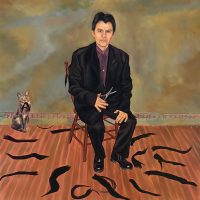PORTRAITS OF DESIRE
ROSALIE FAVELL
Art Gallery of Ontario
June 23, 2023 to April 21, 2024
REVIEW BY E.R. ZAREVICH
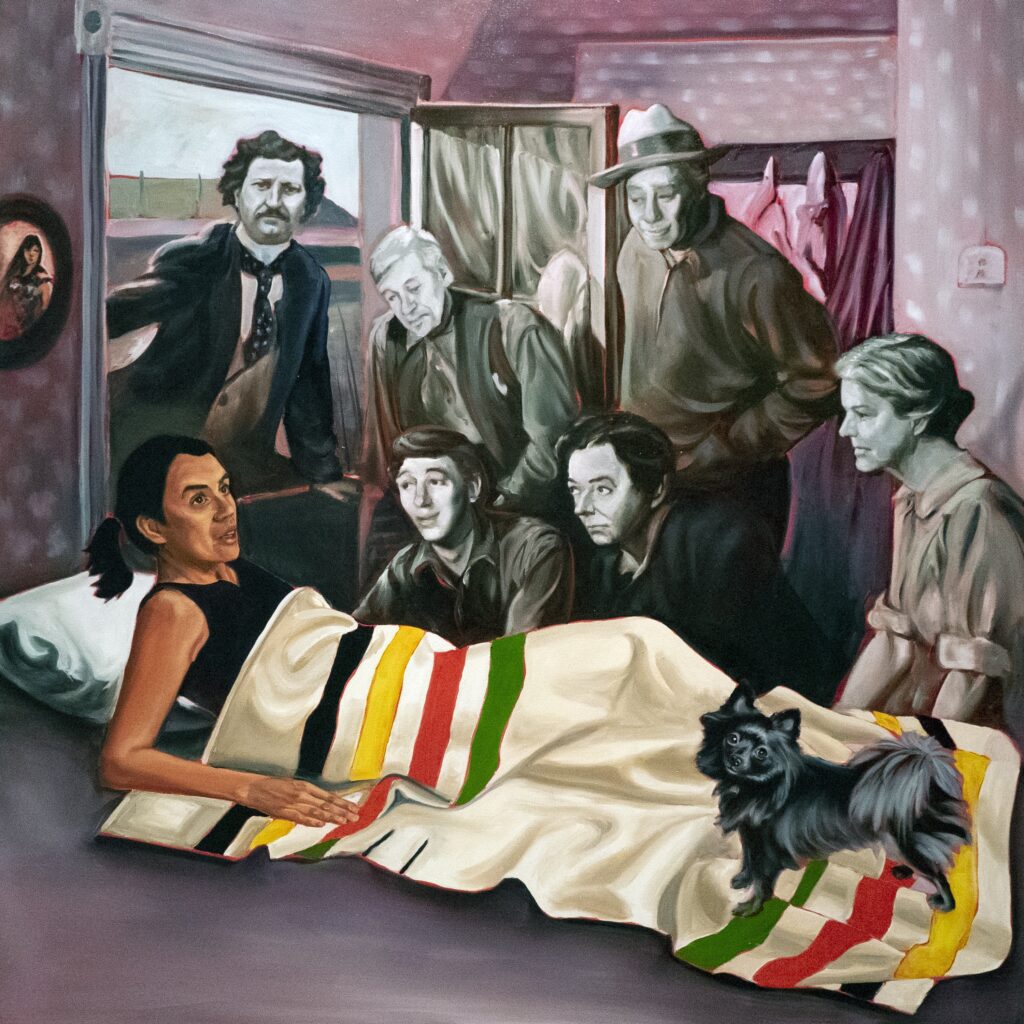
As if walking into a whimsical photo album of feminist outrage and queer coming-of-age memories, Rosalie Favell’s Portraits of Desire is full of kitsch and collage that will not fail to impress. The Winnipeg-born Métis artist of Cree and English descent proudly presents 22 photographs and three oil paintings in her 10-month solo exhibition, curated by Wanda Nanibush.
Be warned: Visiting the exhibition is a bit of a mission for the average, uncoordinated visitor. One must first pass through a labyrinth of galleries to locate Favell’s two rooms, tucked away in a corner of the gallery, almost blocked by tempting arrays of Group of Sevens and other Art Gallery of Ontario (AGO) staples. Once there, prepare for a second metaphorical labyrinth through the passage of time. The nostalgia is whirling, as bold, flashy colours and sepia portraits immerse the senses. This is the overarching scheme: ocular contrasts.
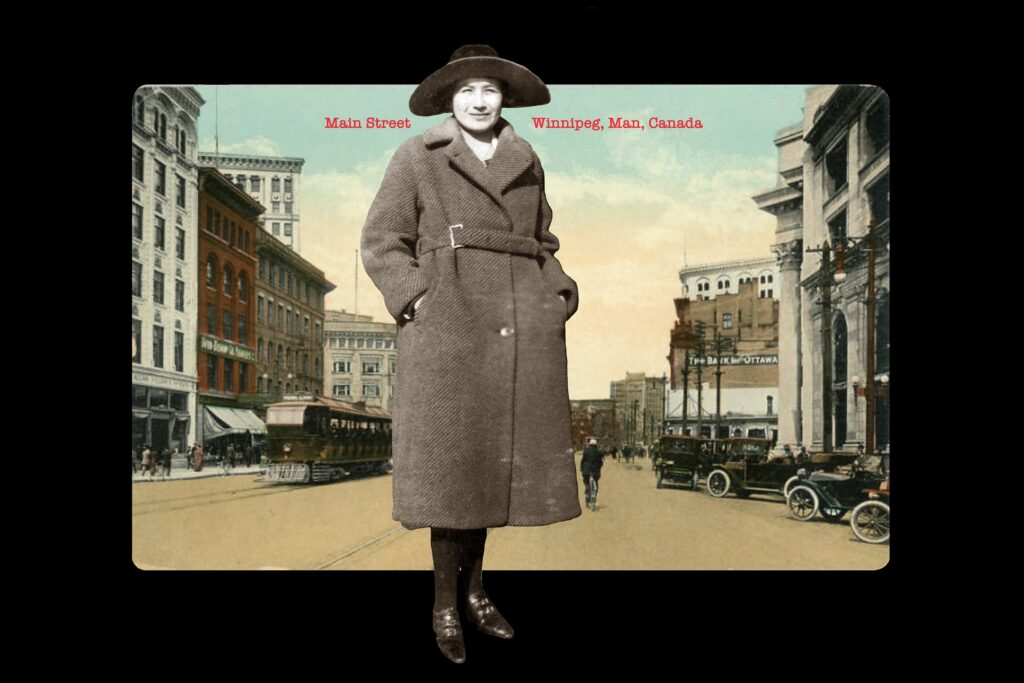
The first room is dedicated to Favell’s adult life, while the second room is more coordinated towards her childhood and ancestry. Walking towards a pink inkjet print depicting lesbian attraction, “Maybe I did love her that way” makes a strong impression. Same-sex love is given the teenage girl poster treatment in an absorbing collage that features the two main characters from The Children’s Hour, a film where two teachers are accused of having an affair and one of the teachers ends up hanging herself out of fear of social backlash. Also featured are the sapphic warriors from Xena: Warrior Princess and a photoshopped childhood photo of Favell in the corner, ultimately depicting an utterly delighted young girl happy to be in the same frame of women loving other women, in spite of the tragedies. This is Favell, proud to be queer.
Some visitors may judge Favell’s pieces as juvenile, or too reminiscent of an amateur graphic designer’s early photoshop attempts. However, this aesthetic is clearly deliberate. The culmination of works, addressing the past and the present of an unconventional life, appear as an amalgamation attempting to answer a question of self and temporality: “Who are you now, and who were you?” If visually perfect, the pieces would lose their main theme, which is the absolute chaos of growing into an adult navigating sexuality, social injustice, and finding inspiration in an increasingly lusterless world.
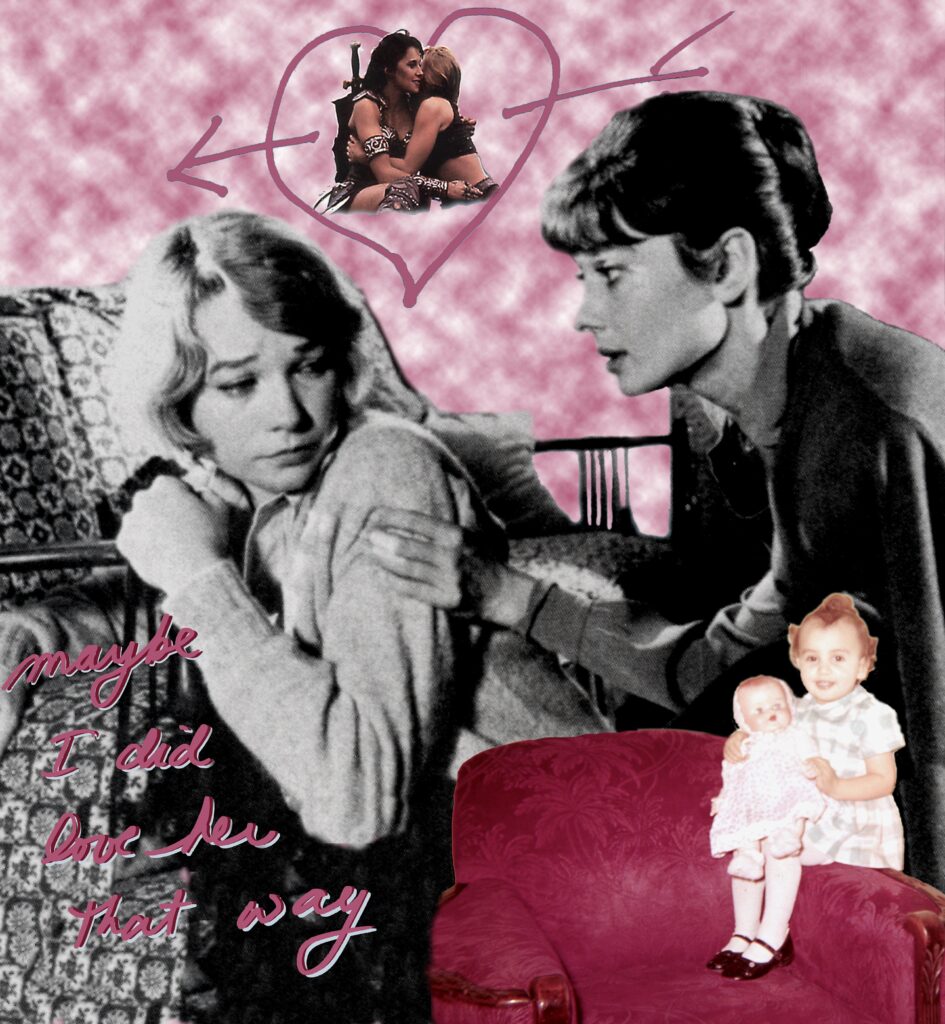
In the collage, “If only you could love me the way I am,” Favell, seated on a chair, wears a suit with scissors in hand and strands of black hair encircling her on the ground. The phrase and visual performance projects her queer Métis subjectivity onto the viewer, as if to tell us that we cannot handle all that she is.
Indeed, it is this line that will ruminate in a visitor’s mind as they reflect on the recent news of curator Nanibush’s departure from the AGO, the first curator of Canadian and Indigenous art at the gallery. The news shocked the Canadian art world, and was linked to a leaked letter accusing Nanibush of “posting inflammatory, inaccurate rants against Israel.”
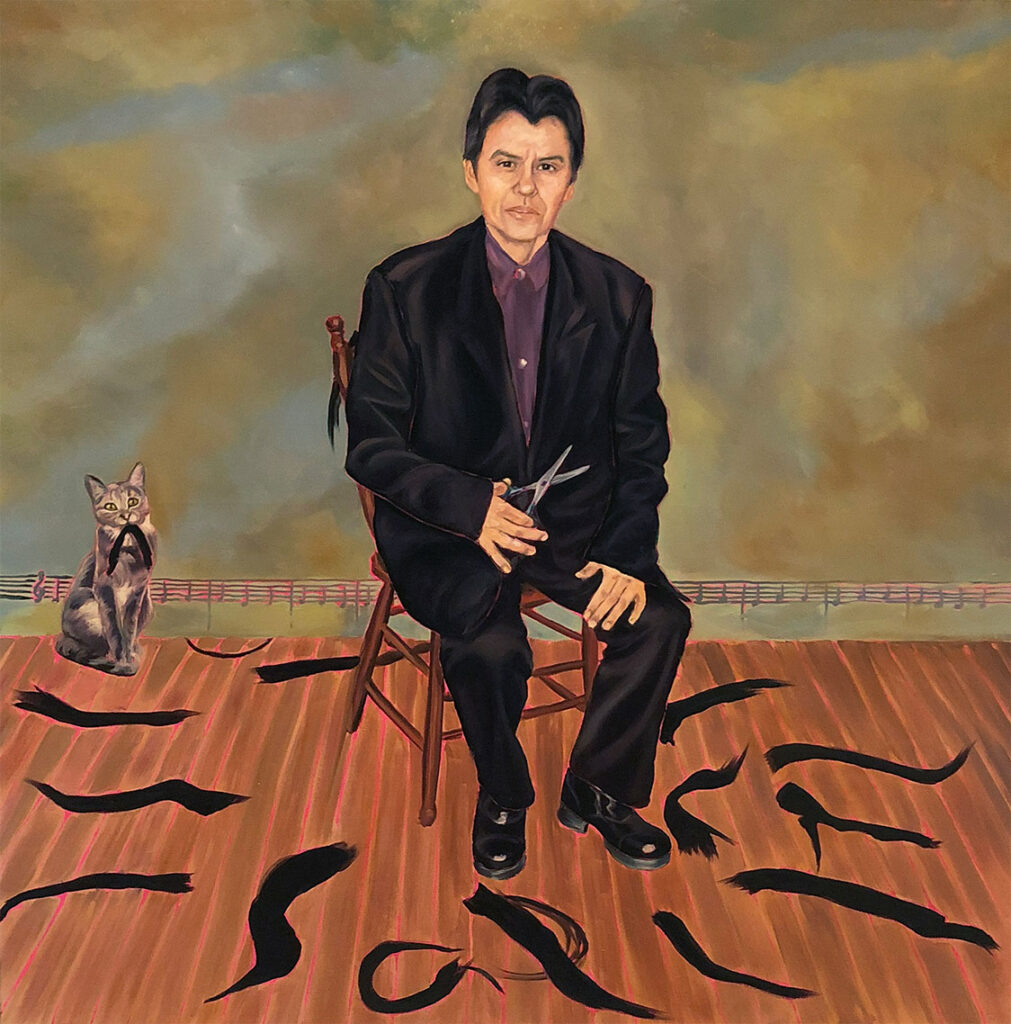
The letter, verified by Hyperallergic and The Global and Mail, was sent to the AGO on Oct. 16 by Israel Museums and Arts, Canada. It accuses Nanibush of hate speech, citing her 2006 article in the now-defunct Canadian Art magazine where she wrote: “Colonization, whether in Canada or Palestine, marks a before and after where identity is radically altered by loss.”
A public open letter published by the Toronto-based Indigenous Curatorial Collective entitled “Let Wanda Speak” calls on the AGO to let Nanibush speak freely about the circumstances regarding her departure.
Reflecting back on Favell’s exhibition, the importance of Indigenous sovereignty and self-representation are abundantly clear. The phrase, “If only you could love me the way I am” echoes as a call against censorship and the violence of colonial institutions.
E.R. Zarevich is a writer from Burlington, Ontario. Her literary criticism can be found in Atlantic Books, Shrapnel Magazine, and Mangoprism, among others.

